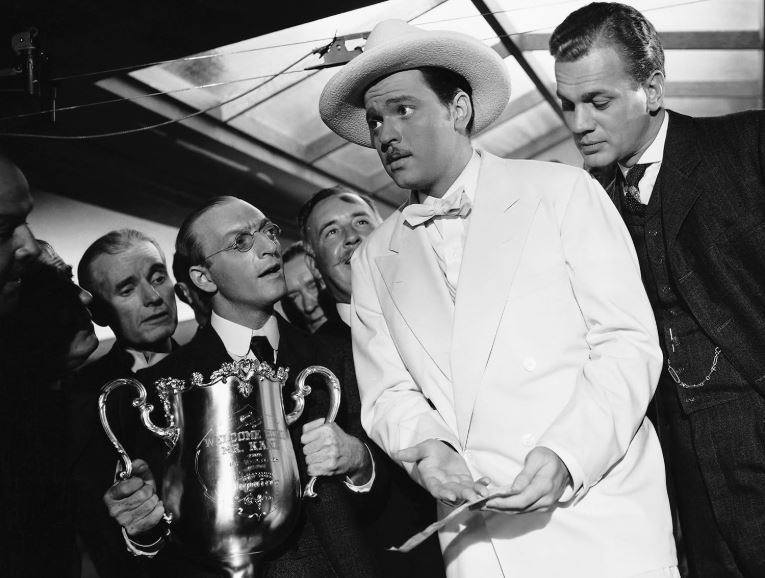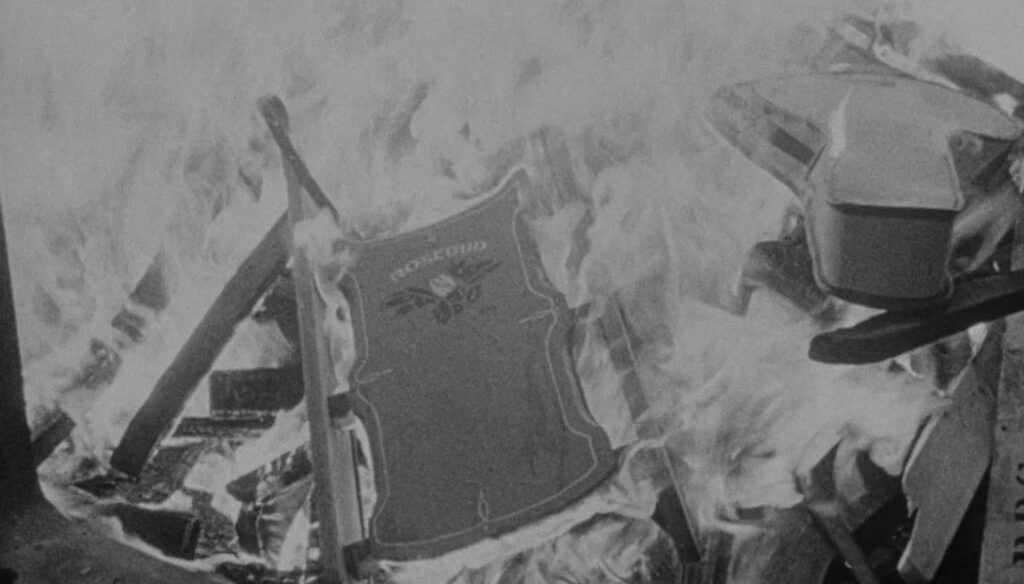
For decades, Citizen Kane was declared to be, as if by fiat, the greatest motion picture ever released by a Hollywood studio. It even had worldwide appeal, having rested atop the sainted Sight & Sound poll from 1962 until 2002, when it was shockingly dislodged by Vertigo. Wherever one stands on its near-universal approbation, it is more than fair to say that from the acting to the cinematography (and certainly the narrative structure), “groundbreaking” doesn’t even begin to cover it. The truest test of this is that, even 84 years later, the film remains readily accessible, without any of the dated trappings that doom some classics to the dustbin of history. In many ways, it’s a film that could have been made last week.
But rather than justifiably gush over the tried and true (and the mammoth screen presence of Orson Welles, who, for my money, stands arm-in-arm with John Huston as the most charismatic figure who ever set foot on a sound stage), let’s celebrate the still, quiet voice of one Mr. Bernstein, inhabited flawlessly by Everett Sloane. Fair enough, “Everett Sloane” hardly sends chills down anyone’s spine, but when the book on 20th century cinematic art is written, he’ll be there, somewhere around the second or third chapter, delivering what I consider to be the greatest monologue in the history of the medium.

Sure, screenwriter Herman J. Mankiewicz (or co-writer Orson) might ultimately be responsible for the actual words put forth by the Bernstein in question, but let’s not mince words: it’s all in the delivery. Sentimental, perhaps, but so universal, there’s not a heart anywhere, beating or buried, that hasn’t sent its essence flowing through our veins. Its inherent truth reaches all, both poor and privileged alike, and if anything can unite race, culture, and creed, it’s the idea that as we look back on our lives, we stand immersed in the chances we never took. Or never had a chance to take. “What if,” because what was leaves us bereft. Woulda, shoulda, coulda as a depressing mantra tattooed on our very souls.
The words, presented in full, because that’s the way Bernstein would want it:
“A fellow will remember a lot of things you wouldn’t think he’d remember. You take me. One day, back in 1896, I was crossing over to Jersey on the ferry, and as we pulled out, there was another ferry pulling in, and on it there was a girl waiting to get off. A white dress she had on. She was carrying a white parasol. I only saw her for one second. She didn’t see me at all, but I’ll bet a month hasn’t gone by since, that I haven’t thought of that girl.”
The story of us all, told brilliantly and succinctly without a trace of unnecessary flourish. But a moment in time – a few seconds out of an ordinary day – and it comes to define the man forever. Everything wrapped up in glorious possibility, without any actual reality to spoil the promise. A glimpse, then a story unfolding, told however we like. We can change the names, the faces, and even the exit ramps, but she remains. Open to every possibility under the sun, but the one fixed point in this imaginary universe. Precious few details – a physical description, lacking depth and insight – so as to flesh her out with all the beauty and wonder we can muster. Perfection, because she never had the chance to let us down. Voice of an angel, dripping with wisdom, because she never so much as opened her mouth. The woman who changed it all, leaving a dying man fulfilled in triumph.

Yes, yes, there is Rosebud, and that’s the eternal mystery of Kane. A childhood lost, never to be regained. But Bernstein’s speech is the actual heart of the matter. The theme, the point, the reason it lives on so long after the suits tried to have it set aflame. Our intellects tell us that had that girl stumbled, fell, and we – you, I – picked her up, only to receive a coy smile, a lunch invitation, and the inevitable courting period to follow, everything, from dress to parasol, would have faded into bitterness and its own unmatched sense of regret. And with all that, as the Reaper tapped, we’d be weaving a beguiling tale not about love unrequited, but love found. And lost. Just another mistake in an existence full of ‘em. A sad, unfortunate ferry ride to nowhere. Instead, we had it all. On our terms. A fitting epitaph for the human condition.
Leave a Reply